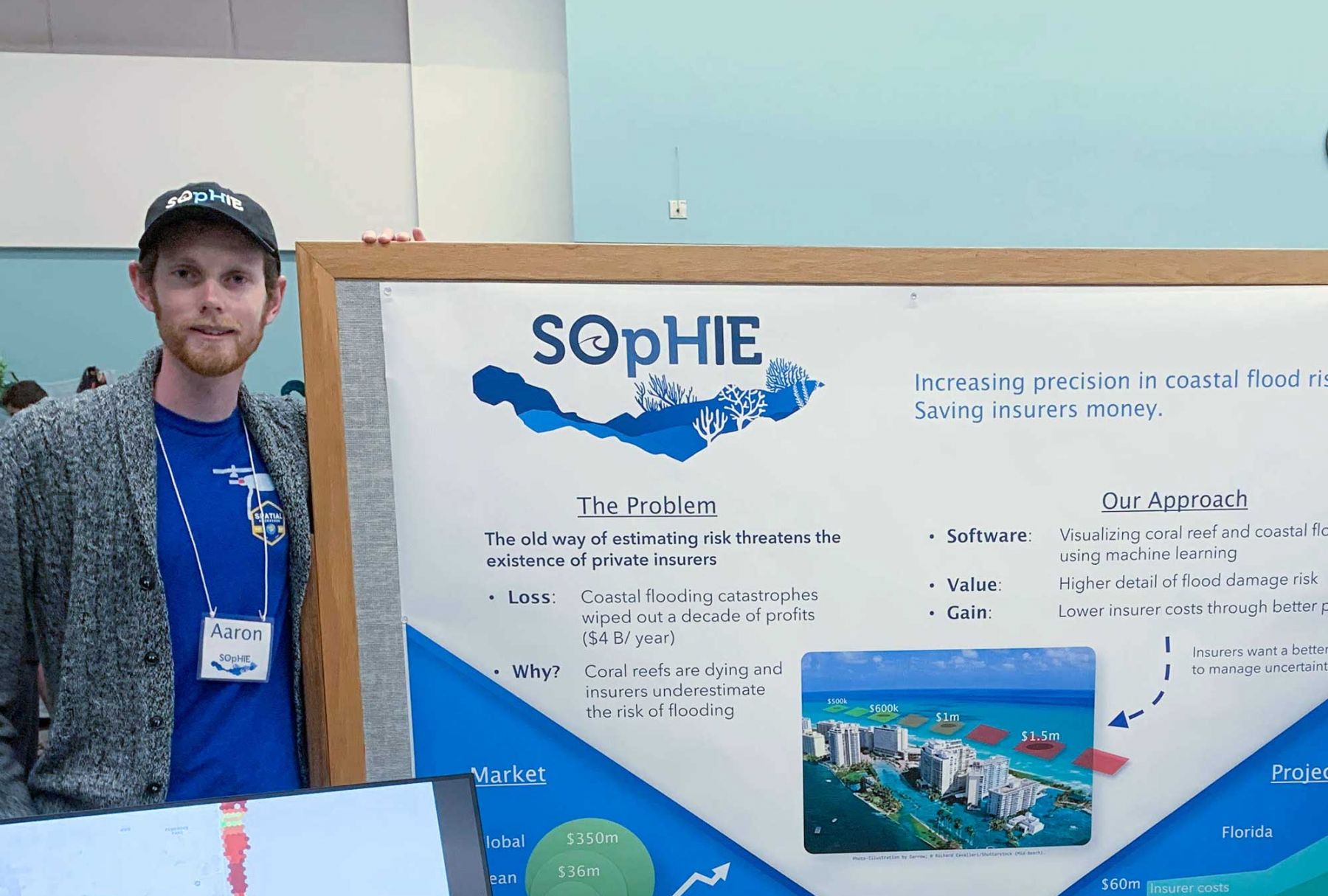About Aaron
Aaron Bagnell is a PhD student in the IGPMS program. He is from Ocean Beach, CA and received his BA in Geophysics from UC Berkeley.
Why UCSB
The University offers a diverse array of opportunities for career development and personal growth, as well as access to expertise across the campus community and beyond. I’ve attended guest speaker lectures hosted by departments as diverse as Mechanical Engineering, Statistics, Earth Science, Environmental Science, and Geography, on topics like climate change, ethics in artificial intelligence, and policy and decision making. There seem to be courses and seminars to fulfill just about every research need and my own intellectual curiosity, as well as opportunities to share my work with audiences across the broader campus.
IGPMS Graduate Program
As it should be in marine science, the program here is very cross-disciplinary. I’ve had many opportunities to interact with students and faculty in both professional and social settings. Even though we are housed in various departments across campus, we are a tight-knit group with a welcoming attitude and genuine interest in keeping up with each other’s research activities. The breadth of work that goes on here is enormous but, even if it is sometimes hard to keep track of it all, we enjoy catching up with each other at our weekly seminars and monthly social gatherings.
Our oceans are changing like never before. We need to change with them, change how we leverage existing data and how we respond, because the old way will not be sustainable for us.
Aaron Bagnell, Graduate Student
Interdepartmental Graduate Program in Marine Science
UC Santa Barbara
Research
The oceans are warming and acidifying. This not only threatens keystone species like corals that serve as pillars for biodiversity, but it threatens enormous industries such as coastal tourism, aquaculture, and fisheries that drive the blue (ocean) economy. In order to respond to these threats, stakeholders need products that better quantify their risk. Unfortunately, this information is usually either opaque or not widely accessible, severely hampering its actionability.
Much of my work has focused on applying big data strategies to our oceans. A case study for this would be historical ocean warming where I apply machine learning to address issues with ocean data quality. However, data accessibility is just as important, so a personal project of mine has been creating a mobile app, SOpHIE, for assessing ocean acidification. As part of the process, I led a team of grad students in the UCSB New Venture Competition, where we participated in a tradeshow style fair. There, we promoted SOpHIE as a potential for-profit business selling software to coastal flood insurers. Ocean data products such as this serve to be a potential boon for businesses, investors, and innovative startups, ultimately promoting further research and development in a sector that has traditionally been neglected and undervalued.
How and Why Did You Get Into Your Area of Research?
I'm a true believer in the blue economy, but in order for it to get its due we need to develop better ways of integrating it into capital markets and the larger economy. In 2017, the XPRIZE Foundation put out a call to develop new groundbreaking mobile apps for ocean data. Already familiar with existing ocean data products, I understood all too well the frustration surrounding their general inaccessibility and difficulty of use, so I responded to that call, developing the award-winning app SOpHIE. After the contest, I pursued the New Venture Competition to demonstrate the efficacy of SOpHIE and other ocean products like it as businesses.
What Do You Find Rewarding About Your Research?
Sometimes science can seem so obscure, with the ramifications of any particular discovery remaining out of reach to the general public, so the most rewarding thing for me has been connecting with people. In marine science, our work is often quite socially relevant, but we don't always do our best at promoting it. Creating a functional end product that has been downloaded and used by people on every continent has been my way of bridging the gap. Using forums such as the New Venture Competition to engage with members of the public, local business leaders, and the scientific community has been immensely rewarding.
